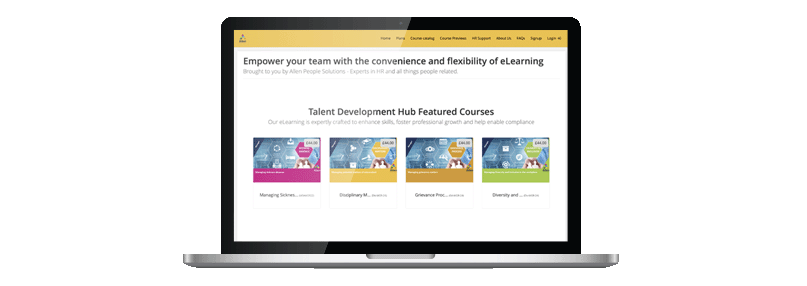
We’ve all had an interview that feels make or break, but the good news is that there are lots of ways to prepare for an interview that will increase the likelihood that you will make the impression you want.
The top tips we will cover are:
We hope that you find some great ways to prepare for an interview in this article, and make sure to check out our the rest of our series on interview tips.
For now, let’s get started!


It goes without saying that our first, and arguably most important tip is to do your research. Find out what you can about the company online from their website, social media accounts and on Glassdoor (or similar sites).
It’s important to understand the history and future plans of the company to assess whether this aligns with your own values and needs in terms of personal development and career progression.
Set time aside to review the job advert, job description and person specification. Identify what the employer is looking for in terms of knowledge, skills, competencies, qualifications as well as professional and personal attributes. Make a list of the identified areas as this will help you with the next step!
You should end up with a list of the essential and desired criteria, which will help form the basis of your answers.
Having analysed the job role, industry and company, it’s now time to prepare some answers / examples for all of the skills, competencies, behaviours and attributes you have identified. Your examples should be rehearsed but not appear overly scripted.
Think about it from a recruiter’s perspective: for example, if you were looking for someone with experience in software engineering, what questions would you want to ask to get a sense for their skillset? Take each of the criteria and try to prepare answers for them, as well as thinking about the questions.
Tip – Ensure you know your CV well enough that you aren’t caught off guard when it’s quoted back to you.
If it makes you feel more prepared, you can also practice your greeting and some small talk to get things rolling – practising this with a friend or relative can be very helpful!

Don’t leave anything to chance on the day of the interview! If it’s in person, plan your route and know exactly where you’re going.
Remember to leave time for error or the unexpected… what if your taxi or bus is late / traffic is heavy, where will you park, what if it is raining?
If it’s over video call, make sure you are familiar with the technology. This is essential as you don’t want to cause yourself extra stress trying to find your way around a new software and risk not getting your points across.
Above all don’t be late, it not only gives a bad impression, it puts you under additional pressure. Equally avoid being too early, it can put the interview panel under pressure when managing other candidates.
Finally, make sure any devices you have with you are switched off before going into the interview.
What is your Unique Selling Point? What sets you apart from the other applicants as the best fit for the role? Can you demonstrate that you have not only the skills, competencies, and experience but that you are personable and that your value system is aligned to that of the company?
Make sure you prepare a few questions you can ask the interviewer at the end of your interview. This will demonstrate that you have a genuine interest in the business and their future goals. Take this time to further show off your suitability and enthusiasm in the role and company.
Of course, you can’t predict exactly what questions will be asked. If there was something you were asked during the interview that you would like more information on or to show your interest in, the end of the interview is the time to ask. It can be a missed opportunity if you simply say you don’t have any questions for the interviewers.
We’ll talk more about making the most of the time you have during the interview in our next part: How to be Successful During the Interview: Tips for Candidates from Recruiters.
Remember, interviews are a two-way conversation. This is as much an opportunity for you to find out about the company as it is for the company to find out more about you.
Join our newsletter
Sign up to keep up to date with exclusive offers, updates and more.
UK & NI:
ROI:
Email: